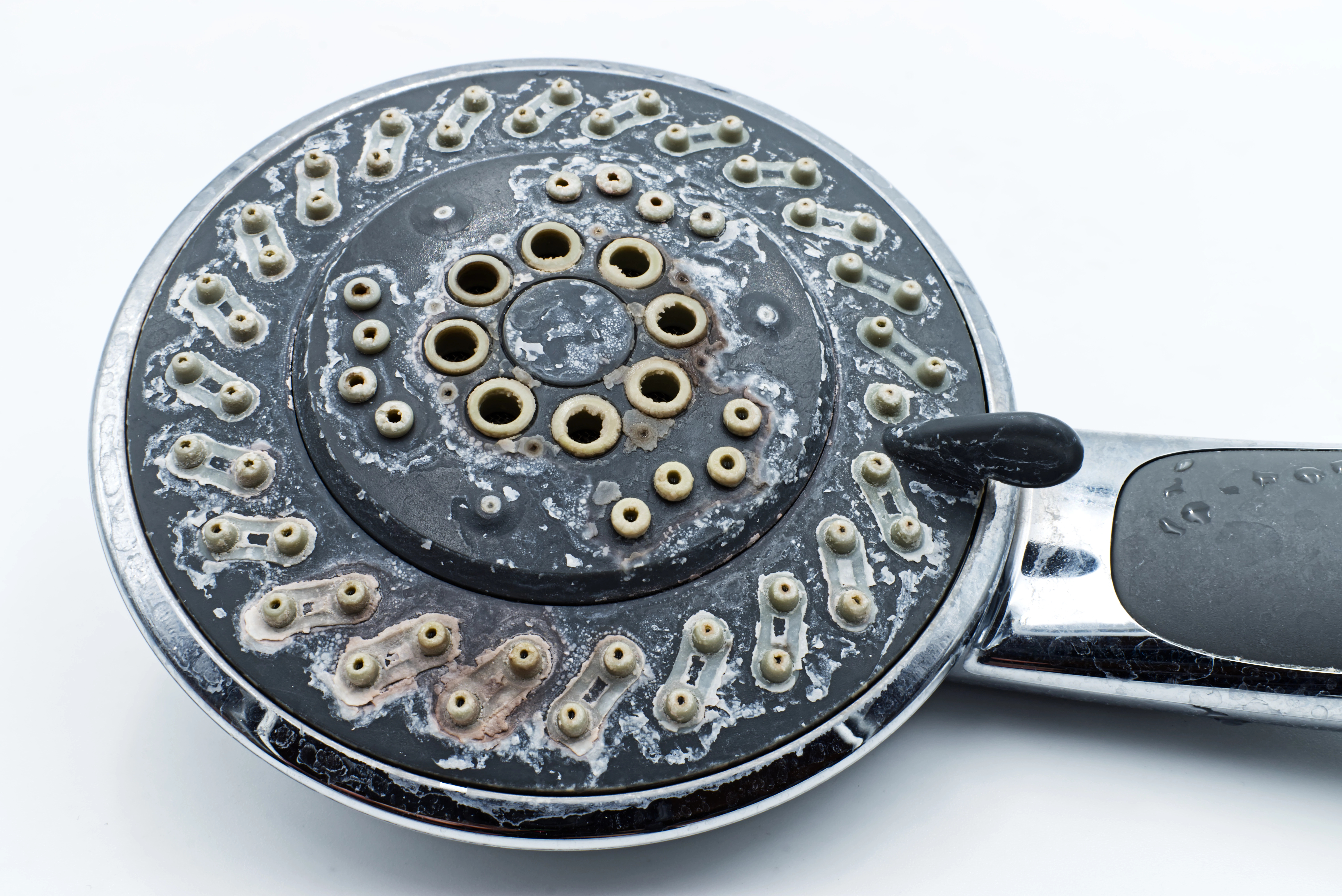
Why do I need a water softener?
- Would you like your plumbing to last longer because there’s no hard water build up?
- Are you looking for softer water for showering, bathing, and laundry?
- Tired of those hard water stains everywhere?
- Want to use less soap and detergents?
- Want to come out of the shower with softer skin and hair?
If you answered yes to the above questions, then we should have a chat about water softeners. You don’t have to live with hard water and its consequences.
Whole house filters can be added to your water softener as well. These filters remove chlorine and sediment as small as 10 microns after the water has been softened.
What kind of damage can hard water do?
It’s true. Hard water can damage appliances such as dish washers, clothes washers, and hot water heaters. You’ve probably already tried to remove hard water stains from your fixtures, sinks, toilets, and bath tubs.
Save yourself the time, money, and effort. Water Treatment Technologies can provide the solution that fits your specific needs and budget.
Home water softeners, also called ion exchange units, remove calcium, magnesium, and other minerals from drinking water. Resin beads inside the water softener trap the calcium and magnesium and exchange them for sodium or potassium.
Water Treatment Technologies sells, rents, and services residential and commercial water softeners designed for Arizona’s water as well as your individual needs and budget. Give us a call and we’ll walk you through your options.

What are the signs my water softener isn't working correctly?
Here are some signs that your water softener is not functioning as it should. Call us with the details so we can help you get the problem resolved.
The water feels hard:
- You may notice you need to scrub harder with soap to get a good lather when washing your hands or bathing.
- Hard water reacts with soap to form soap scum, which you might see accumulate on the surfaces of your shower or tub, and can also leave a film on your skin.
- Spots and streaks on your plates, glasses, and silverware, and mineral stains on your laundered clothes.
What types of noises are not normal for a water softener?
A healthy water softener will naturally make some noise when it undergoes a regeneration cycle. You might hear the gentle hum of the motor, periodic gurgling of water, or the ticking of the water softener’s timer, which may occur every few days or once every one to two weeks, depending on the size and design.
Listen for:
- Hissing or high-pitched squealing can indicate a faulty valve, damaged pipe or hose, or stack assembly.
- Grinding, banging, or other loud noises can be due to mechanical malfunctions or mineral buildup, while trickling noises suggest a leak.
You are going through salt too quickly:
- If you’ve lived in your home for several years, you should have a frame of reference for how much salt your softener requires from month to month. It’s a red flag if you find yourself using more or less salt than you’re accustomed to.
- Also, if your softener appears to be full of salt, consider the possibility of a salt bridge, which is a cake or crust of salt that forms above the water level. Simply break it up with a broomstick or other long tool, and extract and discard any chunks that look too large to dissolve in the water.
Water level is too high – If the water is at a higher level then normal, then there is likely a problem with the water softener that needs to be resolved.
Resin in your water – Resin is the medium in a water softener that performs the ionic exchange to create soft water. Over time, resin breaks down. If it travels through your plumbing, it can cause the plumbing system to become blocked and it may damage fixtures. In a good quality water softener in the Phoenix climate, resin should last around 10 to 12 years.
Mineral Scaling on Fixtures – White or chalky buildup on your faucets, showerheads, or appliances indicates that your water softener isn’t effectively removing hard minerals. This scaling can reduce water flow and efficiency while potentially damaging your plumbing system over time.
Digital Display Issues – Error codes or a non-functioning display could indicate power supply problems, a control board malfunction, or programming errors.
Get Better Water! Call us today! 602-275-8280

